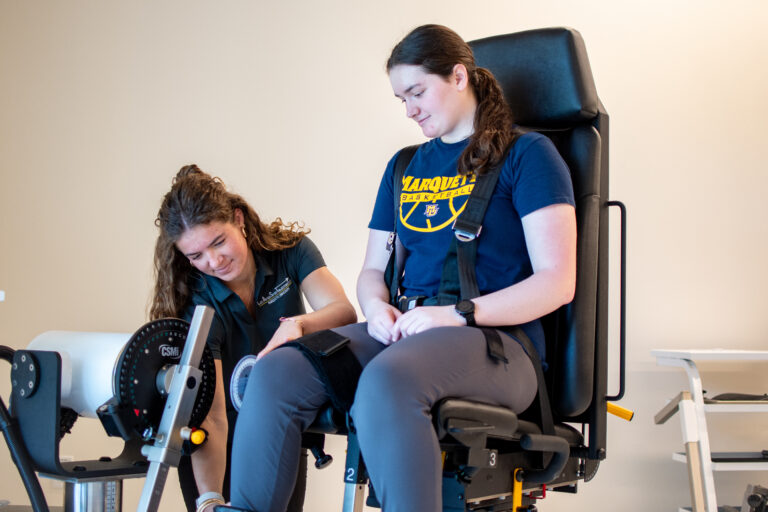Every spring, the second Sunday in March is an unwelcome morning for most people as they wake up groggy and unenthused that the beginning of daylight saving time stole an hour of their weekend rest.

What most people don’t know: besides the heavy eyelids and extra cup of coffee, daylight saving time can pose significant health risks.
Circadian rhythms are changes in every person’s body that occur once every 24 hours. When we shift our clocks, sometimes our internal rhythms take a few days to re-adjust.
“We tend to think an hour isn’t that big of a deal, but in reality, it takes a few days for our bodies to recover,” says Dr. Jennifer Evans, professor of biomedical sciences and circadian rhythm researcher at Marquette.
Evans says bringing an end to daylight saving time and instead having permanent standard time — how we observe time from fall to spring — is in the best interest of people’s bodily health.
The following are some of the ways changing the clocks affects people’s health.
Increased risk of cardiovascular incidents
On the day of the time change, there is an increase in the number of heart attacks and other cardiovascular incidents. According to a study published in 2019, the number of acute myocardial infarctions was higher in the days after daylight saving time began in spring than in the two weeks before and after the time change.
“Our bodies are primed and running according to our time zone,” Evans says. “The time change is an abrupt transition and if there are discrepancies between what our bodies are capable of doing and what we’re asking them to do, it’s going to increase risk.”
Less light in the morning leads to more car crashes
When the clock springs forward, the daylight hours spring with it, meaning it’s darker in the morning and lighter in the afternoon, leading to less visibility during morning commutes and when children are boarding the bus to go to school.
“It’s a simple thing to understand. We’re waking up earlier, we’re still groggy and we’re doing things that our body is not cognitively prepared to do at that hour,” Evans says.
Possible gastrointestinal issues
Since changing the clock for daylight saving time is effectively the same as switching time zones from a biological point of view, Evans says it’s logical to predict that similar symptoms would occur around the time change. Two of the common symptoms of jet lag are indigestion and gastrointestinal problems in the days after travel.
“Our body knows what time of day we usually eat and metabolically prepares for eating food,” Evans says. “If you eat an hour earlier than your body is used to, it isn’t ready to store the food you’re eating.”
Other biological effects
Nearly every single process in a person’s body changes over the day. “Everything from cell division and cell metabolism to protein synthesis and the utilization of fuel, all these bodily functions are changing throughout the day,” Evans says. “You could name anything your body does and there’s a high probability that it’s not static all day long.”
The following are some ways in which our daily rhythms influence our lives.
- Medicine efficacy: The effects of drugs are influenced by the time they are taken. For example, there is an optimal time of day when chemotherapy is more effective at targeting tumor cells and least likely to produce unwanted side effects.
- Shift work: Evans says the human biological clock is not fit for shift work, which puts people who work the third shift at higher risk — so much so that nurses in Denmark receive hazard pay if they work shift work. “Shift workers have higher mortality rates, higher rates of cancer, reproductive issues, cardiovascular issues and metabolic syndrome,” Evans says.
- Effective learning: At puberty, our clocks change and we become more “owlish”. That is, we stay up later and sleep in. When school start times shift to accommodate teenage clocks, it has been shown that exam scores go up.
For more information on Evans’ research, visit her website here.



